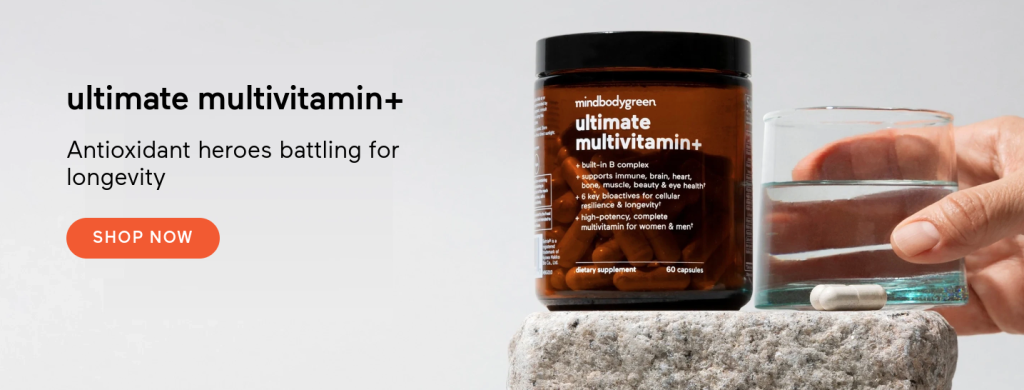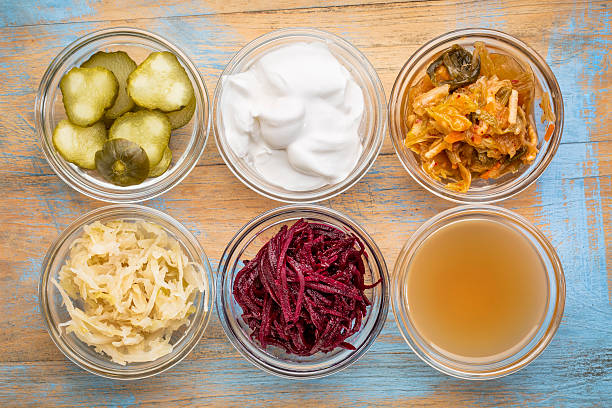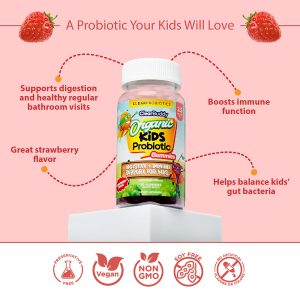Table of Contents
ToggleProbiotics are known for their potential health benefits, but have you ever wondered how long they actually stay in your system?
Understanding the duration of probiotics in the body is essential for optimizing their effectiveness and reaping their full benefits.
In this article, we will explore the lifespan of probiotics, the factors that affect their retention time, and how to achieve optimal gut health through probiotic usage and lifestyle choices.
Key Takeaways:
- Probiotics typically stay in the system for 1-3 weeks, but some strains can stay longer.
- The type of probiotic, dosage, frequency of intake, and other medications taken can influence how long probiotics remain in the gut.
- Providing a consistent supply of probiotics in adequate doses is crucial due to the decreasing viability of probiotic bacteria over time.
- Consulting with a healthcare provider is important to determine the appropriate duration of probiotic use based on individual needs.
- Achieving optimal gut health involves a combination of probiotics and lifestyle choices such as a healthy diet, hydration, sleep, exercise, and stress management.
Factors Affecting Probiotic Retention Time
The retention time of probiotics in your system can be influenced by a variety of factors, ranging from the composition of your gut flora to the effects they have on your digestive tract.
One key factor is the type of probiotic strain used. Different strains have varying abilities to survive and colonize the gut.
For example, some strains of Lactobacillus and Bifidobacterium are known to have a longer lifespan in the gut compared to others. This is due to their ability to adhere to the intestinal lining and withstand the harsh conditions of the digestive tract.
Dosage and frequency of intake also play a role in probiotic retention time. Providing an adequate supply of probiotics in sufficient doses is important for maintaining their presence in the gut.
It’s recommended to follow the dosage instructions provided by the manufacturer or consult with a healthcare provider for personalized guidance.
Other factors that can affect probiotic retention time include the use of certain medications, such as antibiotics, which can disrupt the balance of gut flora and reduce the effectiveness of probiotics.
Individual differences in gut health and metabolism can impact how long probiotics stay in the system.
Interactions with Gut Flora and Digestive Tract
Probiotics interact with the existing gut flora and the digestive tract, which can influence their retention time.
The gut is home to trillions of bacteria that play a crucial role in maintaining overall health.
When probiotics are introduced into the gut, they can interact with the resident bacteria, potentially influencing their establishment and survival.
| Gut Flora | Digestive Tract |
|---|---|
| Composition of gut flora | Effects on the gastrointestinal system |
| Balance of beneficial and harmful bacteria | Impact on digestion and nutrient absorption |
| Microbial diversity | Stimulation of immune response |
They also have the potential to modulate the digestive tract, improving digestion and nutrient absorption.
It’s important to note that probiotics are not permanent residents in the gut and are unlikely to persist after discontinuing supplementation.
In the next section, we will explore the lifespan of probiotics in the body, including their viability over time and the importance of consistent intake.

Understanding Probiotic Lifespan
The lifespan of probiotics in your body can vary depending on the specific strain, but on average, they can generally remain active for about 1-3 weeks.
During this time, probiotic bacteria work to establish themselves in the gut and provide their beneficial effects on gut health.
One key factor that affects the lifespan of probiotics is the type of strain used. Different strains have different characteristics and abilities to survive in the gastrointestinal environment.
Some strains are more resilient and can persist in the gut for longer periods, while others may have a shorter duration of activity.
Providing a consistent supply of probiotics in adequate doses allows for higher colonization rates and can help ensure their viability over time.
On the other hand, irregular or low-dose intake may result in a shorter lifespan and less noticeable effects.
It’s also worth considering other factors that can influence probiotic lifespan, such as the use of other medications.
Certain medications, particularly antibiotics, can disrupt the balance of gut flora and potentially reduce the effectiveness and lifespan of probiotics.
| Factors Affecting Probiotic Lifespan |
|---|
| Strain type |
| Dosage and frequency of intake |
| Use of other medications |

Optimizing Probiotic Duration and Dosage
Probiotics typically stay in the system for 1-3 weeks, although the duration can vary depending on several factors.
The type of probiotic, dosage, frequency of intake, and other medications taken can all influence how long probiotics remain in the gut.
It’s important to note that the viability of probiotic bacteria decreases over time, so it’s crucial to provide a consistent supply in adequate doses.
While probiotics can have a positive impact on gut health, it’s essential to recognize that they are not permanent residents in the body.
Discontinuing supplementation will typically result in the gradual decline of probiotic colonies.
Therefore, consulting with a healthcare provider is crucial to determine the appropriate duration of probiotic use based on individual needs.
Achieving Optimal Gut Health
When it comes to maintaining optimal gut health, probiotics are just one piece of the puzzle.
A holistic approach that incorporates lifestyle choices such as a healthy diet, hydration, sufficient sleep, regular exercise, and stress management is equally important.
By combining the benefits of probiotics with these lifestyle choices, individuals can create an environment in which probiotics thrive and contribute to overall gut health.
It’s important to remember that probiotics alone cannot guarantee optimal gut health, but when combined with these practices, they can have a positive impact on digestion and elimination.
“Probiotics can be a valuable addition to a balanced lifestyle, but it’s crucial to understand that achieving optimal gut health requires a comprehensive approach,” says Dr. Smith, a renowned gastroenterologist.
The Health Benefits of Probiotics
| Health Condition | Benefit of Probiotics |
|---|---|
| Diarrhea | Probiotics can help reduce the duration and severity of diarrhea. |
| Allergies | Probiotics may have a positive impact on allergic conditions, such as eczema and hay fever. |
| Brain Function | Emerging research suggests that probiotics may improve cognitive function and mental health. |
| Cholesterol Levels | Probiotics have shown potential in reducing LDL cholesterol levels, aiding heart health. |
| Irritable Bowel Syndrome (IBS) | Probiotics can help alleviate symptoms and improve the quality of life for those with IBS. |
| Necrotizing Enterocolitis | Probiotics have been found to reduce the risk of this serious intestinal condition in premature infants. |
Consulting a Healthcare Provider
Consulting with a healthcare professional will ensure that you are following a probiotic regimen that is tailored to your individual needs.
The type of probiotic, dosage, frequency of intake, and other medications taken can all influence how long probiotics remain in the gut.
The viability of probiotic bacteria decreases over time, so it is important to provide a consistent supply in adequate doses.
Your healthcare provider can take into account your medical history, current medications, and any underlying conditions to create a personalized plan that optimizes the benefits of probiotics.
A healthy diet, proper hydration, regular exercise, sufficient sleep, and stress management all contribute to a healthy gut.
| Health Benefits of Probiotics |
|---|
| – Addressing diarrhea |
| – Reducing stomach pain |
| – Alleviating allergies |
| – Fighting gastrointestinal infections |
| – Relieving infantile colic |
| – Promoting regularity and reducing constipation |
| – Enhancing brain function |
| – Improving cholesterol levels |
Consulting a healthcare provider will help you navigate the world of probiotics and ensure that you are using them to their fullest potential.
By working together, you can determine the ideal duration of probiotic use and create a comprehensive plan for achieving optimal gut health.

Beyond Probiotics: Achieving Optimal Gut Health
Incorporating various lifestyle choices can significantly impact the health of our digestive system. Here are some key factors to consider:
- A healthy diet: Consuming a well-balanced diet rich in fiber, fruits, vegetables, whole grains, and lean proteins can promote a diverse and robust gut microbiome. These dietary choices provide essential nutrients and fuel the beneficial bacteria in our gut, helping to maintain a healthy digestive system.
- Hydration: Staying hydrated is crucial for optimal digestion. Drinking an adequate amount of water throughout the day supports the movement of food through the digestive system, enabling efficient nutrient absorption and waste elimination.
- Sleep: Quality sleep plays a vital role in gut health. Lack of sleep can disrupt the balance of gut bacteria, leading to digestive issues and inflammation. Prioritizing adequate sleep can help support a healthy gut environment.
- Exercise: Regular physical activity not only benefits overall health but also contributes to a healthy gut. Exercise helps stimulate intestinal contractions, improving digestion and preventing constipation. It also promotes a diverse gut microbiome.
- Stress management: Chronic stress can have a negative impact on gut health. Implementing stress management techniques, such as meditation, deep breathing exercises, and engaging in activities we enjoy, can help reduce stress levels and maintain a healthy gut.
“Our lifestyle choices have a profound influence on the health of our gut. By incorporating a healthy diet, staying hydrated, prioritizing sleep, engaging in regular exercise, and managing stress, we can support a flourishing gut microbiome and overall optimal gut health.”
Probiotics in Foods and Supplements
| Probiotic Source | State of Probiotics | Concentration |
|---|---|---|
| Foods (e.g., yogurt, kimchi) | Dormant state maintained by low temperature and acidity | Naturally present in varying amounts |
| Supplements | Dormant state due to freeze-drying | Present in high concentrations |
Both food and supplement sources of probiotics offer their own benefits. Probiotics in foods are naturally present in varying amounts, while those in supplements are present in higher concentrations.
The dormant state of probiotics in supplements is maintained through freeze-drying techniques, ensuring their viability until consumed.
It’s important to note that probiotics in both foods and supplements are typically measured in colony-forming units (CFUs), which represent the number of viable bacteria or yeast.

A Word from HealthyVibe
Probiotics offer a multitude of health benefits, ranging from supporting digestive health to potentially enhancing brain function and lowering cholesterol levels.
Consuming these beneficial bacteria aids in balancing gut flora, essential for digestion and overall health.
Studies validate their role in mitigating gastrointestinal issues and infections, and recent research even points to their positive influence on cognitive function and mood.
Found in foods like yogurt and kimchi, as well as supplements, it’s vital to focus on the CFU count when selecting probiotics.
However, for optimal gut health, incorporating a balanced diet, adequate hydration, sleep, regular exercise, and stress management is equally crucial.
By integrating these lifestyle elements with probiotics, one can foster a robust gut and holistic health.
FAQ
How long do probiotics stay in your system?
Probiotics typically stay in the system for 1-3 weeks, but some strains can stay longer. Factors such as the type of probiotic, dosage, frequency of intake, and other medications taken can affect how long probiotics remain in the gut.
What factors can affect probiotic retention time?
The factors that can affect how long probiotics stay in your system include their interaction with gut flora and their impact on the gastrointestinal system.
How long do probiotics actually live in the body?
The viability of probiotic bacteria decreases over time, so it’s important to provide a consistent supply in adequate doses. Probiotics are not permanent and are unlikely to persist after discontinuing supplementation.
How can I optimize the duration and dosage of probiotics?
Optimizing the duration and dosage of probiotics involves understanding their effects on the gastrointestinal system and considering factors such as digestion and elimination.
Why is it important to consult a healthcare provider?
Consulting with a healthcare provider is important to determine the appropriate duration of probiotic use based on individual needs, as everyone’s requirements may vary.
What else can I do for optimal gut health?
Achieving optimal gut health involves more than just taking probiotics. It also requires a holistic approach that includes lifestyle choices such as a healthy diet, hydration, sleep, exercise, and stress management.
What are the health benefits of probiotics?
Probiotics can have various health benefits, including addressing gastrointestinal issues such as diarrhea, stomach pain, constipation, and irritable bowel syndrome. They can also have positive effects on brain function, cholesterol levels, allergies, infantile colic, gastrointestinal infections, and necrotizing enterocolitis.











